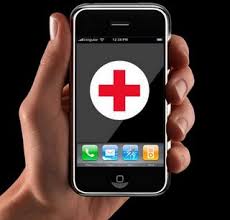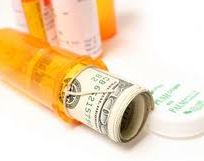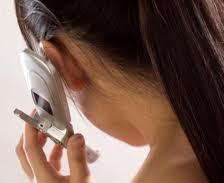February 27th, 2011 by Glenn Laffel, M.D., Ph.D. in Better Health Network, Research
No Comments »

Most people know that the U.S. is struggling to contain a surging epidemic of obesity, and that the problem is most acute among African-Americans. Whereas about 27 percent of all adult Americans are obese (defined as having a body mass index of 30 or more), fully 37 percent of African-American adults are obese, and that number jumps to an appalling 42 percent among African-American women.
Over the years, public health officials have provided evidence that socioeconomic and cultural factors drive this racial disparity. Now, a new study suggests there is another reason as well: Obese African-Americans receive less obesity-related counseling than their white counterparts, and it matters not whether the physicians they see are African-American or white.
To reach these conclusions, Sara Bleich and colleagues from the Johns Hopkins School of Public Health used clinical encounter data from the 2005–2007 National Ambulatory Medical Care Surveys (NAMCS). The sample included 2,231 visits involving African-American and white obese people who were at least 20 years old and who visited family practitioners and internists that were either African-American or white. Asian and Hispanic patients and physicians were excluded from the study because their numbers were too small to permit hypothesis testing.
For each encounter in the study, the scientists determined whether the patient received guidance on weight reduction, diet and nutrition, or exercise from his or her physician. Read more »
*This blog post was originally published at Pizaazz*
February 27th, 2011 by Bryan Vartabedian, M.D. in Better Health Network, Opinion
No Comments »

 This is something. Jay Parkinson on the Future Well blog has suggested that health apps are overrated. Then on Twitter came a remark that the post represented “fightin’ words.” While I think the tweet was in jest, I’m sure there are some who will take offense to the less-than-flattering remarks about our coveted health apps.
This is something. Jay Parkinson on the Future Well blog has suggested that health apps are overrated. Then on Twitter came a remark that the post represented “fightin’ words.” While I think the tweet was in jest, I’m sure there are some who will take offense to the less-than-flattering remarks about our coveted health apps.
We love the concept of health apps for what they represent more than for what they really offer us. We want to feel that we’ve got it all in the palm of our hand. After all, technology might do for us what we won’t do for ourselves.
Like Jay I’m underwhelmed, but I don’t think that’ll always be the case. The post’s criticism should start a conversation about what’s real in mobile health and what isn’t. Even the fantasy of Health 2.0 has been questioned, and that’s a good thing. This dialog about reality versus rainbows and unicorns needs to continue.
Youngme Moon in Different: Escaping the Competitive Herd wrote, “The way to keep criticism from devolving into cynicism is to make it a starting point rather than a punctuation mark.” Jay Parkinson’s post is a starting point.
*This blog post was originally published at 33 Charts*
February 27th, 2011 by RyanDuBosar in Better Health Network, Research
1 Comment »

 The top five therapeutic classes ranked by total expense are metabolic, central nervous system, cardiovascular, gastrointestinal, and psychotherapeutic, altogether totaling $155.7 billion, or two-thirds of prescription drug expenses by U.S. adults in 2008.
The top five therapeutic classes ranked by total expense are metabolic, central nervous system, cardiovascular, gastrointestinal, and psychotherapeutic, altogether totaling $155.7 billion, or two-thirds of prescription drug expenses by U.S. adults in 2008.
Two-thirds of American adults use a prescription drug, totaling the $232.6 billion in expenses. The Agency for Healthcare Research and Quality compiled a statistical brief showing that drug classes varied widely in how they made the top five list. While 46 percent of adults with a prescribed drug expense bought a central nervous system agent, they are relatively cheaper on average. Gastrointestinal agents had the highest average expense per prescription ($133), or more than three times the average expense of the cheapest class, which was cardiovascular agents ($39). But 46 percent of adults who take a prescription drug use a central nervous system agent, while 17.7 percent take a gastroenterological one.
 Metabolic agents had the highest total expenses ($52.2 billion), or more than one-fifth of all prescription drug expenses. The rest of the list by total expenditures were central nervous system agents ($35.1 billion), cardiovascular agents ($28.6 billion), gastrointestinal agents ($20.2 billion), and psychotherapeutic agents ($19.6 billion).
Metabolic agents had the highest total expenses ($52.2 billion), or more than one-fifth of all prescription drug expenses. The rest of the list by total expenditures were central nervous system agents ($35.1 billion), cardiovascular agents ($28.6 billion), gastrointestinal agents ($20.2 billion), and psychotherapeutic agents ($19.6 billion).
The estimates presented are derived from the Household and Pharmacy Components of the 2008 Medical Expenditure Panel Survey (MEPS). Expenditures include payments from all sources including out of pocket, private and public insurance sources for outpatient prescription drug purchases during 2008. Over-the-counter medicines are excluded, as are prescription medicines administered in an inpatient setting, clinic, or physician’s office.
*This blog post was originally published at ACP Internist*
February 26th, 2011 by PJSkerrett in Opinion, Research
No Comments »

 We all know that using a cell phone can stimulate the brain to work a bit harder. “Mr. Skerrett? This is Dr. LeWine’s office. Do you have a minute to talk about your test results?” or “Dad, a bunch of kids are going to Casey’s house after the dance. Can I go?” But a new study published in JAMA is making me wonder what the energy emitted by the phone itself — not just the information it delivers — is doing to my brain.
We all know that using a cell phone can stimulate the brain to work a bit harder. “Mr. Skerrett? This is Dr. LeWine’s office. Do you have a minute to talk about your test results?” or “Dad, a bunch of kids are going to Casey’s house after the dance. Can I go?” But a new study published in JAMA is making me wonder what the energy emitted by the phone itself — not just the information it delivers — is doing to my brain.
Here’s the study in a nutshell. Dr. Nora Volkow and her colleagues recruited 47 volunteers to have their brain activity measured twice by a PET scanner. Both times the volunteer had a cell phone strapped to each ear. During one measurement, both phones were turned off. During the other, one phone was turned on but muted so the volunteer didn’t know it was on; the other was left off. Each session lasted about an hour. The scans showed a small increase in the brain’s use of glucose (blood sugar) when the phone was on, but only in parts of the brain close to the antenna.
It was an elegant study. The researchers took pains to anticipate sources of error. They used a control (both phones off) against which to compare the effect of a “live” cell phone. They used cell phones on each ear, one on and one off, to see if the effect was localized. They muted the phone that was on to eliminate the possibility that any brain activation was due to listening to the sound of a voice coming through the phone’s speaker. So the result is probably a real one, not an artifact or measurement error.
What does this brain activation mean? No one really knows. As Dr. Volkow told NPR, “I cannot say if it is bad that they [cell phones] are increasing glucose metabolism, or if it could be good.” Read more »
*This blog post was originally published at Harvard Health Blog*
February 26th, 2011 by Steven Roy Daviss, M.D. in Health Policy, Opinion
No Comments »


I read today that Eastern Ontario has started a bed registry to keep track of where open psychiatric beds are available. This is something I’ve long advocated. The United States now has less than 10 percent of the beds it used to have 50 years ago. Granted, treatment has improved and community resources are enhanced. But there are still areas that often do not have a sufficient number of hospital beds for folks needing acute inpatient psychiatric care.
 The Ontario story described in the Ottawa Citizen states that six of the area hospitals have been connected to a computerized “bed board” that provides real-time information on who has an appropriate bed available. This saves time in the ER and gets patients to needed treatment more quickly. Otherwise calls need to be made to each individual hospital, which is very time-consuming.
The Ontario story described in the Ottawa Citizen states that six of the area hospitals have been connected to a computerized “bed board” that provides real-time information on who has an appropriate bed available. This saves time in the ER and gets patients to needed treatment more quickly. Otherwise calls need to be made to each individual hospital, which is very time-consuming.
And it’s not uncommon for all the beds to be full. Last July there was an EMTALA complaint against a hospital in Maryland because a patient sat in the ER all weekend, and this hospital said they had no beds to admit the patient to. The Department of Health and Mental Hygiene (DHMH) investigated the complaint and found that indeed the hospital was full that weekend. The ER’s record indicated that all the hospitals (except the state hospitals) were called that weekend and all indicated their beds were full. So DHMH visited every hospital (about 28, I think) thinking that surely one of them had an empty bed they were hiding. What they discovered was that every single psychiatric bed in the state was full.
Unfortunately, we have no way of determining how often this happens, but we know if happens often enough. A “bed board” like this would be very helpful in quickly finding beds when needed and keeping track of the extent of this problem. Having patients wait in ER for days is unsafe and is even discriminatory. How many people with stroke or uncontrolled diabetes sit in ER for days waiting to find a bed for treatment? I’d like to hear others’ thoughts on how this problem can be addressed.
*This blog post was originally published at Shrink Rap*






















